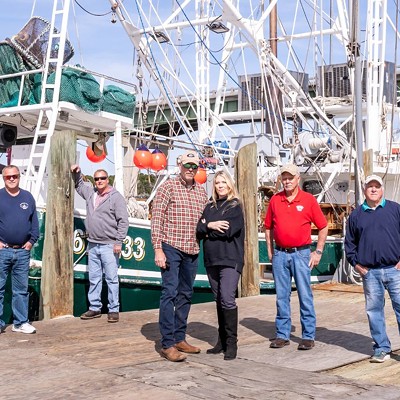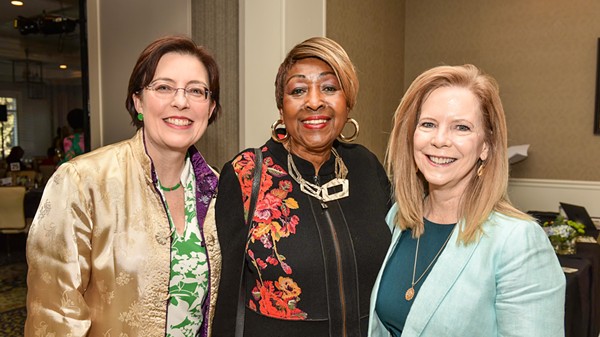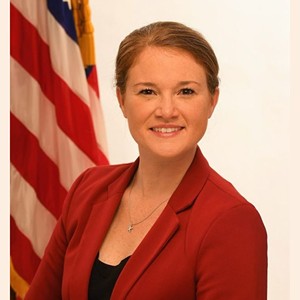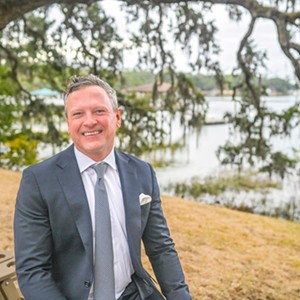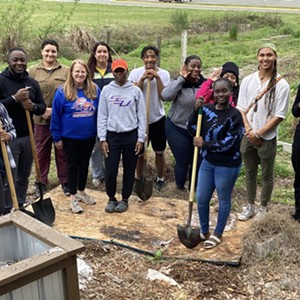Taking Savannah Back - from whom?
[
{
"name": "Air - MedRect Combo - Inline Content 1",
"component": "14680855",
"insertPoint": "7",
"requiredCountToDisplay": "5",
"parentWrapperClass": "fdn-ads-inline-content-block"
},{
"name": "Air - MedRect Combo - Inline Content 2",
"component": "14680856",
"insertPoint": "15",
"requiredCountToDisplay": "9",
"parentWrapperClass": "fdn-ads-inline-content-block"
},{
"name": "Air - SVP - Leaderboard - Inline Content - 2",
"component": "16852291",
"insertPoint": "10",
"requiredCountToDisplay": "10",
"parentWrapperClass": "fdn-ads-inline-content-block"
},{
"name": "Air - SVP - Leaderboard - Inline Content - 3",
"component": "16852292",
"insertPoint": "20",
"requiredCountToDisplay": "18",
"parentWrapperClass": "fdn-ads-inline-content-block"
},{
"name": "Air - SVP - Leaderboard - Inline Content - 1",
"component": "16852290",
"insertPoint": "25",
"requiredCountToDisplay": "22",
"parentWrapperClass": "fdn-ads-inline-content-block"
}
]
Six e-mails made tonight happen, said organizer Michael Shortt at the end of a packed, lively and often cantankerous crime forum last week.
But Shortt sold himself short. Media-savvy advance planning paid off big-time for the professionally packaged meeting at the DeSoto Hilton, held in response to the recent shooting death of 19-year-old Jennifer Ross.
By weeks end the Atlanta Journal/Constitution had published an account of the forum, and the Associated Press had circulated its own report to papers around the nation.
Under the banner Take Savannah Back, the forum was attended by at least 200 people, including nearly the entire City Council and County Commission as well as Interim Police Chief Willie Lovett.
But publicizing an event by e-mail has its drawbacks in a city where nearly a third of the residents live beneath the poverty level. No more than a dozen attendees were African-American -- maybe two dozen if you count elected officials.
Indeed, a show of hands proved that the number of Landings residents there was almost equal to the number of non-elected black citizens in attendance.
The forum was driven by a nearly palpable -- and perfectly understandable -- sense of outrage at the horrific murder of a promising young person with her whole life ahead of her.
Race is always an issue whenever crime is discussed in Savannah. But because Ross also happened to be a white graduate of the areas most exclusive private school, race was even more of an issue at this forum.
During a question and comment session, one elderly, well-dressed white man said that people from the housing projects are foraging through the streets, going on to ask why not have more gated communities, with people having to log in and log out?
At one point things got downright ugly.
When an African-American woman, Antoinette Dunham, came to the microphone with a plea for racial equality, saying black people are human beings who deserve the same life you do, she was loudly booed by several white members of the audience.
Five years ago when I lost my brother I didnt see anyone here, Dunham began.
Now people are trying to cut down branches without getting to the root of the problem. And the root of the problem is that when you look at me, you think Im not as good as you, she finished over a rising chorus of boos.
The booing was at best a shameful bit of immaturity, and at worst a nasty display of the kind of blatant racism many white people in Savannah swear no longer exists. While a number of constructive suggestions were made during the evening, the forums racial tension spilled over on other occasions as well.
Rolfe Glover
Referring to a recent controversial e-mail circulated by Republican political consultant and Chamber of Commerce board member Dave Simons, Jamal Toure said:
For a political consultant to say were worried about crime because now its in our neighborhood, thats a tragedy. We should not only Save Our Savannah in Ardsley Park, but in Hazzard County as they call it, at East Broad and Anderson.
But the most provocative comment came from L.L. Law, cousin of the late local civil rights leader W.W. Law.
Sharing his famous relatives outspoken flair, Law said, Sherman should have burned this motherfucker down.
Calling Savannah a Confederate city still too caught up in the past, Law excoriated local white business owners for not hiring enough black males.
However, Norman Whipple, an African-American who heads the local Guardian Angels chapter, was having none of that. Whipple said Law personally disrespected me by insinuating that racial discrimination was the overriding reason why people commit crime in Savannah.
Whipple also rejected the idea of more gates. Whether youre inside a gated community or outside, crime is still your problem, he said.
Echoing Whipple -- and doing a lot to heal the evenings racial divide -- was an African-American woman who said she, too, had lost a relative to a murderer. She said she felt the Ross familys loss and sent her own familys condolences, adding that crime is not a matter of color.
She received not boos, but voluminous applause.
Though virtually every city and county official was at the forum, most behaved as if they were in a lions den. Many were visibly resistant to the combative tone of the meeting (a tone which differed immensely from the standing ovation the mayor received this past weekend at a public crime forum at the Unitarian Universalist Church).
In his turn at the microphone, Mayor Otis Johnson reflected the wary attitude:
Im not here to make a speech. Im here to listen to you, the mayor said.
Insisting that he and city council have talked about little else but crime since his election, Johnson said, The D.A.s office has some work to do. The judges have some work to do. The juvenile justice system has a lot to do. And you will have a lot to do.
In a thinly veiled reference to white Savannahs notoriously short attention span about local crime, Johnson closed with, Six months from now I hope you are as energized and committed to fighting crime as you are tonight.
The crowd listens
As befitting a county commission chairman elected by an unusual coalition of black voters and white middle class residents, Pete Liakakis opted both to defend police and to call for more to be done about social problems.
There have been over 46,600 people arrested over the past five years, he said. The police have answered 1,067,000 calls.
At the same time, Liakakis said theres more to be done.
Over the same period, juvenile crime has increased dramatically. Forty percent of students that drop out go on to commit crime. Until we address these social problems were going to still have crime in our community.
Another county commission member, however, had a different take on how to address social problems.
I am calling for a Disciplined Georgia, said Commissioner Dean Kicklighter, who recommended an end to what he calls frivolous lawsuits that hamper corporal punishment in public places like schools and Wal-Marts.
The state system doesnt require consequences, Kicklighter said. Multiple offenders have to get off of the streets. You can talk to any police officer and theyll tell you that police arrest criminals daily, and some are back on the streets that same night.
Painfully recounting his own experience at losing a brother to a homicide, Kicklighter also urged reform of the state Pardons and Parole Board.
Every day is hell, he said, referring to his familys constant petitioning of the board to deny parole to the murderer.
Youd think a former Savannah police chief would have had a lot to say at the forum, but the always taciturn Dave Gellatly -- now a county commissioner -- held his tongue until the very end.
You have two or three hundred people who commit 80 percent of the crime. We know who they are. It looks like well have to revisit Problem Oriented Policing, he said, referring to a school of thought which says police should look at community issues as problems that should be solved and eliminated.
One local man -- an ordinary citizen, he calls himself -- who knows about Problem Oriented Policing is Rolfe Glover, who at the forum presented the report from his work on the Public Safety Task Forces Police Committee.
The product of 15 citizens riding along with police from May 2004 to May 2005, the committees report seeks to answer the deceptively simple question, Can police make a difference?
Mayor Otis Johnson
Glover emphatically said yes.
Taking the example of the Rudy Giuliani era of New York City, Glover said In 1990 they had 2245 homicides. In 2005 they had 540 homicides. They have cut homicides every year for 15 years. Thats a reduction of 75 percent.
Glover said the most pressing problem for Savannah police is a lack of staff at the patrol level, which he says needs at least 60 additional officers immediately.
Every turnout of patrols we saw was a third to a half short. When you turn out a patrol thats short, its reactive rather than proactive, he said.
Glover said in addition, Savannah police are not tasked with solving problems and eliminating them, but are managing problems instead.
Stressing that this is the fault of the way officers are staffed and deployed and not of the officers themselves, Glover recommended first of all changing the police policy that keeps all vacancies at the precinct level. Thats a policy change that can be made tomorrow.
He said the force can find 50 officers that can immediately be shifted into patrol rotation in the precincts.
Taxpayers are paying for fully-staffed precincts, and right now theyre not getting one officer per beat.
Glover closed with Savannah will get the police department it demands. We should demand the best.
But in Problem Oriented Policing, who are the decision makers that will define what -- and more importantly, who - the problem is?
And if theyre wrong -- then what?
With further meetings, discussions and commitments, answers to those questions will get closer. Is Savannah finally ready for those answers?



